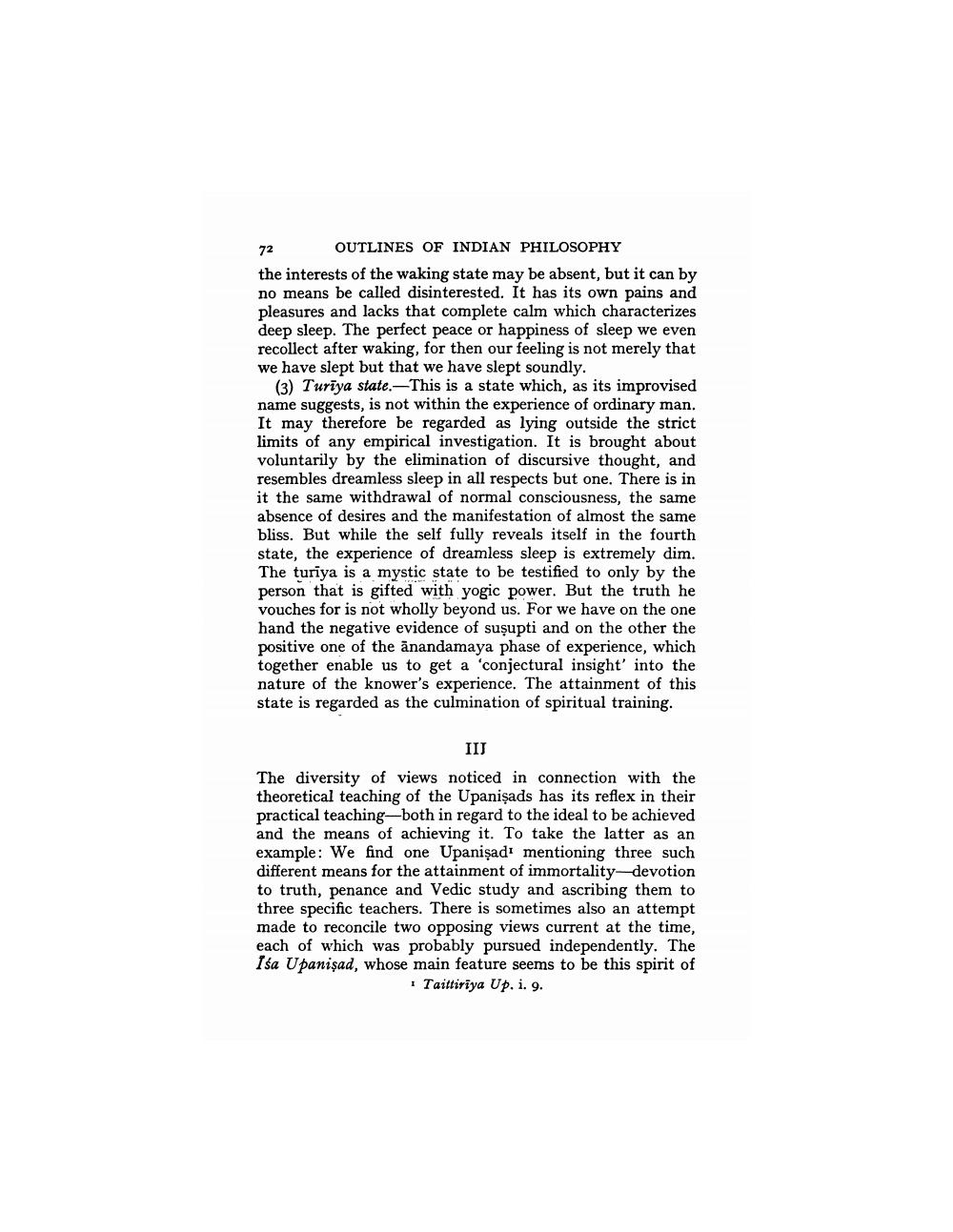________________
72
OUTLINES OF INDIAN PHILOSOPHY the interests of the waking state may be absent, but it can by no means be called disinterested. It has its own pains and pleasures and lacks that complete calm which characterizes deep sleep. The perfect peace or happiness of sleep we even recollect after waking, for then our feeling is not merely that we have slept but that we have slept soundly.
(3) Turīya state. This is a state which, as its improvised name suggests, is not within the experience of ordinary man. It may therefore be regarded as lying outside the strict limits of any empirical investigation. It is brought about voluntarily by the elimination of discursive thought, and resembles dreamless sleep in all respects but one. There is in it the same withdrawal of normal consciousness, the same absence of desires and the manifestation of almost the same bliss. But while the self fully reveals itself in the fourth state, the experience of dreamless sleep is extremely dim The turiya is a mystic state to be testified to only by the person that is gifted with yogic power. But the truth he vouches for is not wholly beyond us. For we have on the one hand the negative evidence of susupti and on the other the positive one of the anandamaya phase of experience, which together enable us to get a 'conjectural insight into the nature of the knower's experience. The attainment of this state is regarded as the culmination of spiritual training.
IIJ
The diversity of views noticed in connection with the theoretical teaching of the Upanişads has its reflex in their practical teaching-both in regard to the ideal to be achieved and the means of achieving it. To take the latter as an example: We find one Upanişadı mentioning three such different means for the attainment of immortality-devotion to truth, penance and Vedic study and ascribing them to three specific teachers. There is sometimes also an attempt made to reconcile two opposing views current at the time, each of which was probably pursued independently. The Isa Upanişad, whose main feature seems to be this spirit of
* Taittiriya Up. i. 9.




